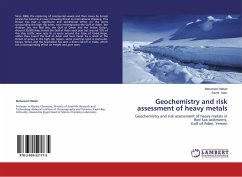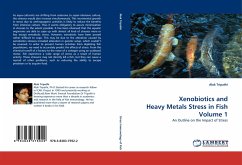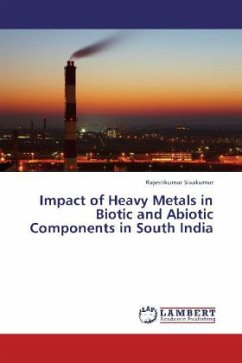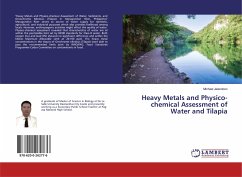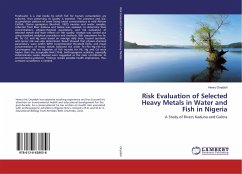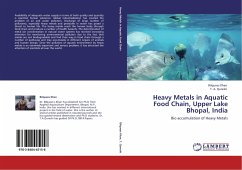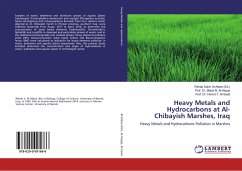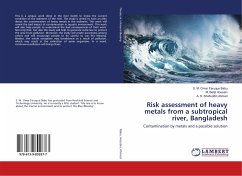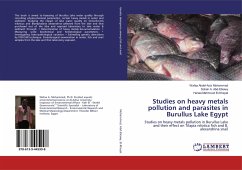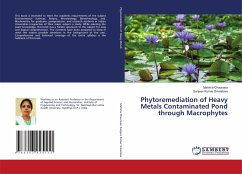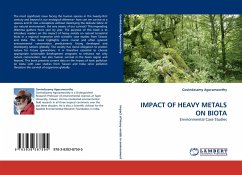
IMPACT OF HEAVY METALS ON BIOTA
Environmental Case Studies
Versandkostenfrei!
Versandfertig in 6-10 Tagen
32,99 €
inkl. MwSt.

PAYBACK Punkte
16 °P sammeln!
The most significant issue facing the human species in the twenty-first century and beyond is our ecological dilemma how can we survive as a species and fit into a biosphere without destroying the delicate fabric of our natural environment, the very means of our survival? This impending dilemma gathers force year by year. The purpose of this book is to introduce readers on the impact of heavy metals on natural terrestrial biota in a regional respective with scientific case studies from Taiwan and India. This book highlights some crucial and often ignored environmental conservation predicaments...
The most significant issue facing the human species in the twenty-first century and beyond is our ecological dilemma how can we survive as a species and fit into a biosphere without destroying the delicate fabric of our natural environment, the very means of our survival? This impending dilemma gathers force year by year. The purpose of this book is to introduce readers on the impact of heavy metals on natural terrestrial biota in a regional respective with scientific case studies from Taiwan and India. This book highlights some crucial and often ignored environmental conservation predicaments facing developed and developing nations globally. The society has moral obligation to protect nature for future generations. It is therefore essential to choose appropriate sustainable development programs to enhance not only nature conservation, but also human survival in the Asian region and beyond. This book presents current data on the impact of toxic pollution on biota with case studies from Taiwan and India since pollution threatens the survival of organisms globally.



